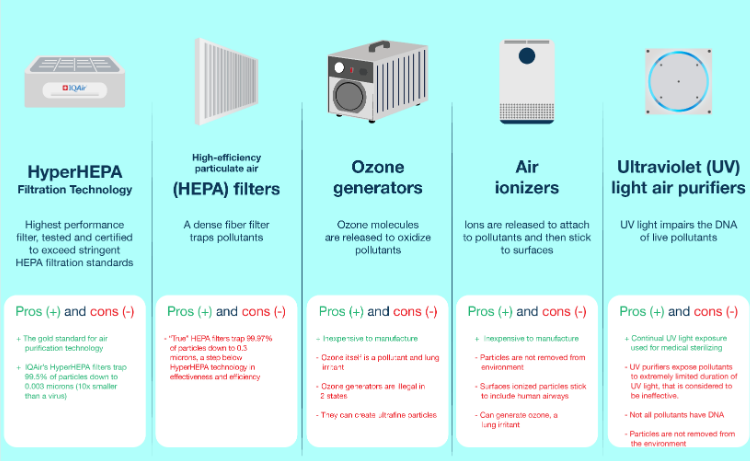Introduction
Air purifiers have become an essential appliance for maintaining indoor air quality, reducing allergens, and improving overall respiratory health. However, one common concern many people have is: does an air purifier make the air dry? In this comprehensive guide, we will explore the truth behind this question, debunk common myths, and provide expert tips on maintaining the right humidity level in your home.
How Do Air Purifiers Work?
An air purifier functions by filtering airborne particles such as dust, allergens, smoke, and pollutants, making the indoor environment cleaner and healthier. The most common types of air purifiers include:
- HEPA Filters: Capture 99.97% of airborne particles as small as 0.3 microns.
- Activated Carbon Filters: Remove odors, smoke, and volatile organic compounds (VOCs).
- Ionizers: Use charged particles to neutralize pollutants.
- UV Light Purifiers: Kill bacteria and viruses through ultraviolet radiation.
Does an Air Purifier Remove Moisture?
No, air purifiers do not remove moisture from the air. Unlike dehumidifiers, which are designed to extract water from the air, air purifiers focus solely on removing pollutants. The misconception arises because air purifiers can create a sensation of dryness by circulating air more efficiently, leading to increased evaporation from your skin and surroundings.
Air Purifiers vs. Humidity Levels
1. Do HEPA Filters Dry the Air?
HEPA filters are highly effective at trapping pollutants but have no impact on moisture content. They do not alter humidity levels in any way.
2. Do Ionizers Affect Air Dryness?
Ionizers release charged ions into the air, which bind to pollutants, causing them to settle. However, they do not affect the moisture balance of the room.
3. Why Does the Air Feel Drier with an Air Purifier?
Some people experience a drier sensation when using an air purifier. This occurs due to:
- Increased airflow: Faster circulation speeds up evaporation from the skin.
- Winter usage: In colder months, indoor heating can reduce humidity, and air purifiers may enhance the feeling of dryness.
- Air conditioning effects: If used alongside AC units, air circulation can make the environment feel drier.

How to Prevent Dry Air While Using an Air Purifier
1. Use a Humidifier
Pairing an air purifier with a humidifier can help maintain balanced humidity levels, ensuring indoor comfort.
2. Place Bowls of Water Around the Room
Placing shallow bowls of water near air vents or windows can help increase moisture through natural evaporation.
3. Avoid Overusing the Air Purifier
Running an air purifier continuously at the highest setting may cause excessive airflow, leading to increased evaporation. Adjust settings based on room size and pollution levels.
4. Check Your Home’s Ventilation
Proper ventilation helps in maintaining optimal humidity levels. Avoid excessive use of exhaust fans, especially in winter.
Best Air Purifiers for Balanced Air Quality
1. HEPA & Carbon Filter Combo
Air purifiers with both HEPA and activated carbon filters provide clean air without affecting humidity.
2. Smart Air Purifiers with Humidity Sensors
Some advanced air purifiers come with built-in humidity sensors, allowing users to monitor moisture levels.
3. Air Purifiers with Adjustable Fan Speeds
Adjusting fan speed prevents excessive airflow and avoids creating a dry feeling in the room.
FAQ Section
1. Does an air purifier make the air dry in winter?
No, but heating systems can reduce indoor humidity, making the air feel drier when using an air purifier.
2. Can an air purifier and humidifier be used together?
Yes, using both ensures clean air and optimal humidity levels for indoor comfort.
3. Do all air purifiers affect humidity?
No, standard air purifiers only clean the air and do not impact moisture levels.
4. How can I prevent my skin from drying out while using an air purifier?
Using a humidifier, staying hydrated, and applying a moisturizer can help maintain skin hydration.
5. Does running an air purifier overnight dry out my throat?
Not directly, but if your room is already dry, increased air circulation may lead to mild throat discomfort.
6. Can an air purifier help with allergies without making the air dry?
Yes, an air purifier reduces allergens like pollen, dust, and pet dander without removing moisture from the air.
Conclusion
Air purifiers are highly effective in improving indoor air quality but do not make the air dry. The misconception arises due to increased airflow, which may enhance evaporation and create a drying effect. By pairing an air purifier with a humidifier and optimizing room ventilation, you can enjoy cleaner air without sacrificing indoor comfort. If you’re looking for the best air purifier for your needs, choose one with HEPA and activated carbon filters for maximum effectiveness.

